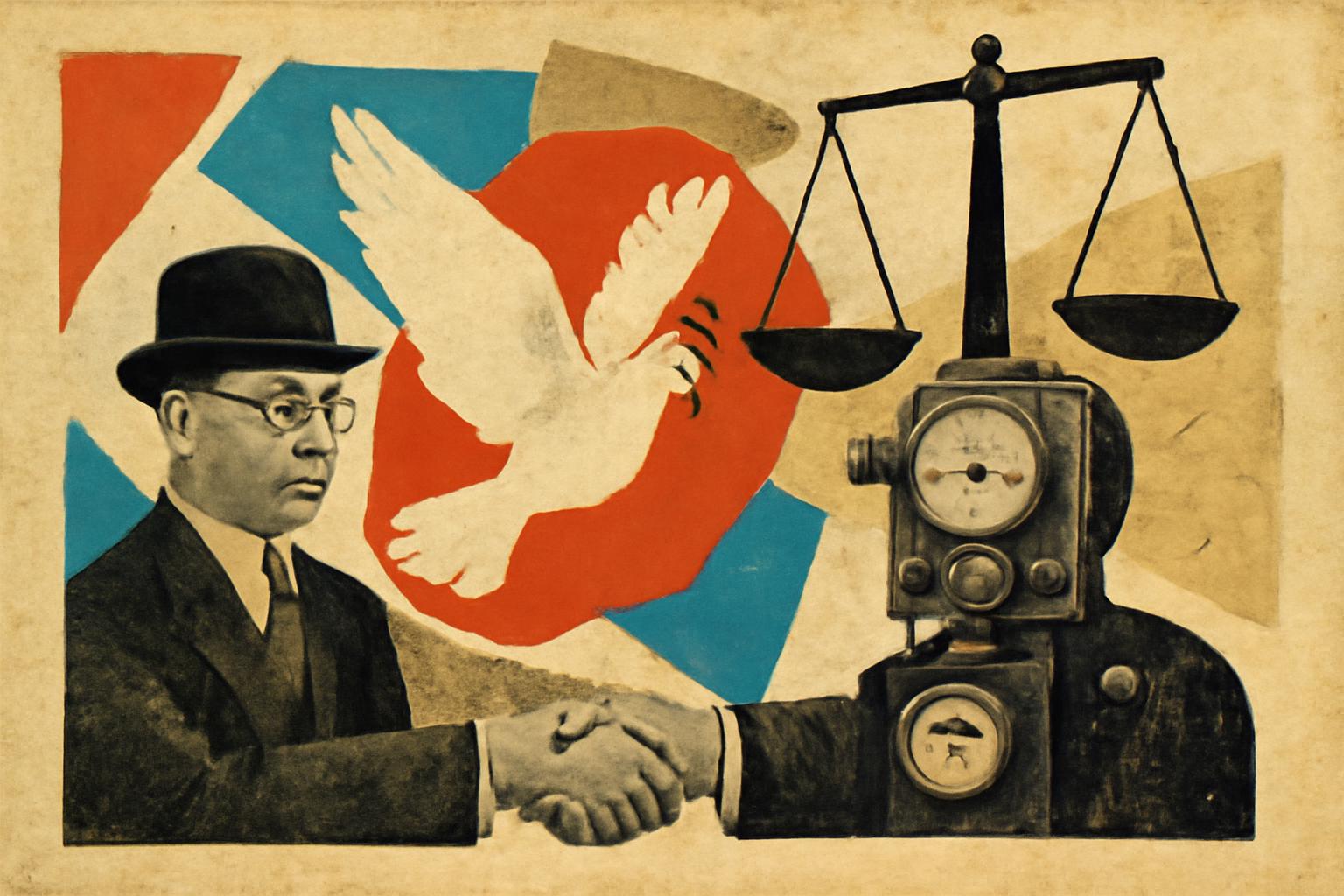The spectacle of a summit staged on a military base proves once again that the state pretends to be the guardian of peace while behaving like the owner of every outcome in disputes over rights, territory, and life. The real question isn’t which leader says what, but what the use of force and coercive diplomacy says about the legitimacy of the rulers who claim to speak for whole populations. In a sane order, such talks would be unnecessary because private property, voluntary association, and competitive defense would align incentives toward peaceful resolution rather than grandstanding on a base.
The situation, as described, is brutal: a sovereign nation under armed attack, a chunk of territory contested, civilians paying the price of power politics, and yet the “peace process” tethered to a brief, exploratory encounter rather than a binding legal settlement. Don’t mistake the theatrics for a path to justice. The insistence by Western actors on a ceasefire tied to nonnegotiable security guarantees and on keeping contested frontiers in place until after fighting stops reveals a fundamental mispricing of rights and responsibilities. If rights to life, liberty, and property are real, they cannot be subsidized away by a timetable or a treaty that starts from coercive concessions rather than mutual consent.
Hayek would warn that the very idea of a centrally managed peace process—especially one that depends on a grand bargain hammered out in a high-profile setting—underestimates the dispersion of knowledge. The information needed to forecast the consequences of any territorial concession or security guarantee is dispersed across millions of individuals and dozens of private institutions. Central planners, even in pinstripes and with the best intentions, cannot compute the complex web of incentives that such concessions create. The Alaska moment, in Hayekian terms, is a reminder that planning the peace is as dangerous as planning the economy: you can’t know what you don’t observe, and you certainly can’t coax spontaneous cooperation into prosperity by fiat.
Nozick adds the necessary corrective: rights-respecting diplomacy cannot treat state-to-state bargains as if they erase individuals’ claims to liberty. A legitimate peace must respect the sovereignty and self-ownership of people, not merely redraw borders by force or legitimacy conferred by negotiators behind closed doors. Any deal that requires one people to surrender autonomy or another to erase its own defensive needs is a violation of the minimal, rights-protecting order Nozick defends. A Night-Watchman framework, if it were truly applied, would resist turning international disputes into opportunities for territorial redistribution or prestige projects by a ruling class. The defense of rights should come from voluntary, decentralized protection and private security arrangements, not from an expansive, centralized diplomacy that treats borders as negotiable assets rather than as zones where individuals live, work, and own.
Rand would insist that the moral core is individual rights, not collective prestige or geopolitical utility. The right to defend one’s life and property is non-negotiable; the right to think and act for oneself cannot be bartered away for a lull in hostilities. Appeasing a coercive actor with concessions to territory or influence signals that rights violations are permissible if they yield short-term relief. This is anti-life claptrap in Rand’s terms: it treats human beings as instruments of state bargaining rather than ends in themselves. The path to peace, if it stands a chance of being just, must rest on protecting individuals’ rights to liberty and property, and on voluntary, noncoercive treaties among private actors who are free to exchange, cooperate, and compete.
What would a libertarian approach to this crisis look like in practice? First, reject the premise that a grand ceasefire must be built on the back of contested frontiers or a covenant that guarantees one side’s strategic advantages. Rights-based diplomacy requires that any settlement be voluntary and based on consent, not on coercive concessions demanded by a stronger state. Second, scale back state interventions that inflame the conflict rather than resolve it: no endless cycles of sanctions, no militarized escalations justified as “security guarantees,” and no expansion of alliances that convert foreign policy into a permanent war machine. If protection of life and property is truly paramount, then the focus should be on restraining aggression, not policing the globe with interventions that create dependency and moral hazard.
Open markets, free exchange, and voluntary aid should take precedence over state-driven interventions. The humanitarian impulse is rightly moral, but it should be organized by private philanthropy, civil society, and competitive institutions rather than by government channels that treat human beings as instruments of diplomacy. A libertarian peace would be anchored in borderless cooperation where possible, and in robust, private defense capabilities where necessary, rather than in state-sponsored guarantees that mutate into perpetual bargaining chips.
The Alaska moment should be read as a stress test of whether the Western order will be shaped by fear and coercion or by respect for rights and the rule of law. If Hayek’s caution about knowledge and local inquiry is correct, then the most prudent path is to reduce centralized intervention and let price signals—of trade, migration, private security, and voluntary aid—guide outcomes. If Nozick’s rights-based framework is to be honored, then any movement toward concessions that redefine sovereignty must be justifiable on the basis of voluntary consent, not coercive pressure. If Rand’s ethics of rational self-interest is binding, then moral leadership in this crisis means defending life and liberty with principled clarity, not trading away territory or autonomy for a temporary halt to violence.
In the end, the only sustainable peace is one built on voluntary cooperation, mutual respect for private property, and a minimal state limited to protecting individual rights rather than expanding its own authority through war-prepared diplomacy. The Alaska moment is a crucible: it will reveal whether the practitioners of international power are capable of replacing coercive bargaining with a respect for liberty, or whether they will double down on the illusions that state force can, by itself, conjure peace.
